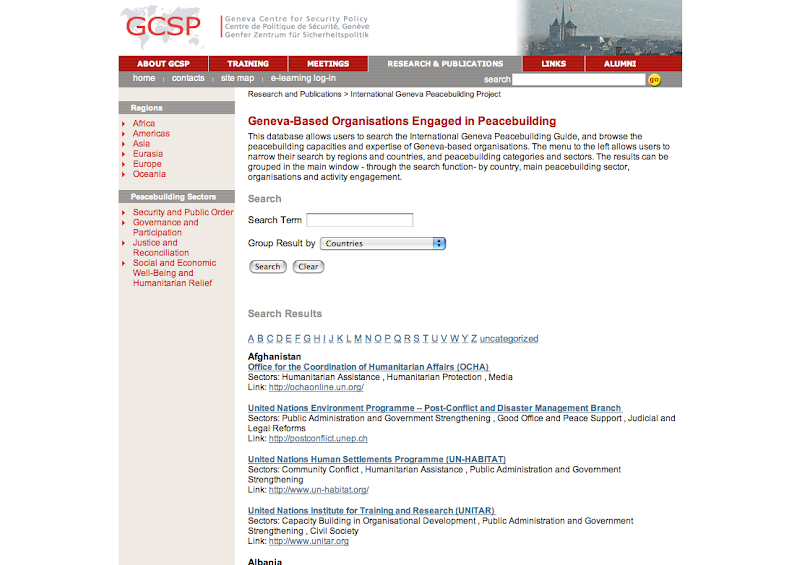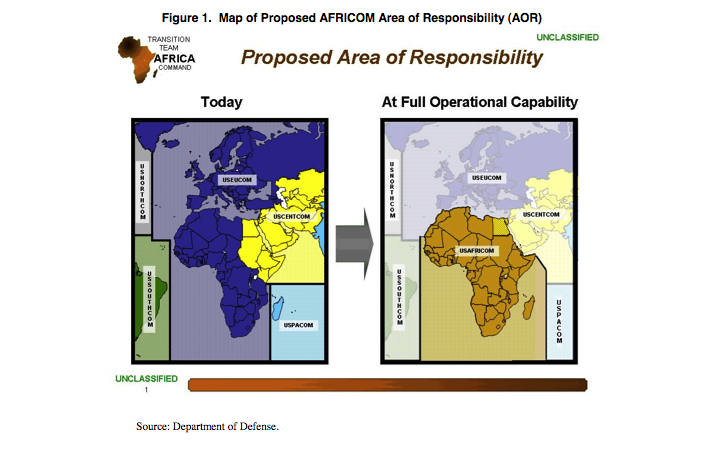A new resource was launched this week by the
Geneva Centre for Security Policy:
'This conference presents the preliminary findings of an analytical mapping that was undertaken as an integral part of ‘The UN Peacebuilding Commission and International Geneva’ project. Since late 2005, the GCSP and its partners have organised a series of events and public discussions looking at the implications for International Geneva of the work of the UN Peacebuilding Commission. The project has been developed by the Geneva Centre for Security Policy (GCSP) in collaboration with its partners, the Quaker United Nations Office in Geneva (QUNO), the Graduate Institute for International Studies (HEI/PSIS) and the Geneva Centre for Democratic Control of Armed Forces (DCAF). Financial support has been provided by the Swiss Federal Department of Foreign Affairs (FDFA) and the Geneva International Academic Network (GIAN).
Since 2006, the project and its partners have engaged a broad range of International Geneva stakeholders in discussions, workshops and public events, aimed at examining the importance of peacebuilding, and the formation of the UN Peacebuilding Commission (PBC). These events and discussions led to a number of findings and recommendations that looked at how International Geneva could influence peacebuilding issues including questions of financing, local ownership, civil society, expertise, analysis, networks and coordination. Please refer to Annex 3 for more details activities of the project to date.
To complement the ongoing discussions and events of 2006, it was decided to undertake an
analytical mapping of the peacebuilding capacities and expertise of Geneva-based stakeholders. The results of this mapping have been made public in an online database, the
‘International Geneva Peacebuilding Guide’. This Guide allows users to conduct complex searches and filtering of the data collected from the mapping. The International Geneva Peacebuidlding Guide can be consulted at the following link: http://www.gcsp.ch/e/publications/IGPeaceProject/Guide/index.htm.
The preliminary findings of the project to date are included in this document, and offer a first glimpse of the data collected as of 09 September 2007. We are able to have a comprehensive look at the topography of the International Geneva peacebuilding landscape, the types of organisations present, the countries in which these organisations are engaged, the peacebuilding sectors in which they are active, and the types of activities they undertake. A total of 69 organisations have provided detailed information on on up to 3 peacebuilding sectors where they feel they have the greatest added value, and have also elaborated on how they engage in these priority sectors in the actual and potential PBC focus countries.'
The Guide can be accessed
here.




